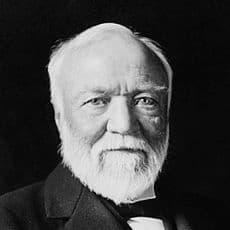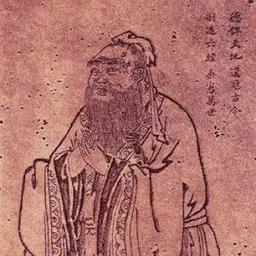219 Quotes
"Launching a new platform, he said, was like starting a new country: Getting users to move from an established network that had an ossified economy and social classes to a new network requires the possibility of success"
— Li Jin
The Creator Economy Needs a Middle Class"the new social network had to create upward mobility for all users, to “make sure there’s a middle class coming up."
— Li Jin
The Creator Economy Needs a Middle Class"The current creator landscape more closely resembles an economy in which wealth is concentrated at the top."
— Li Jin
The Creator Economy Needs a Middle Class"The sustainability of nations and the defensibility of platforms is better when wealth isn’t concentrated in the top 1%."
— Li Jin
The Creator Economy Needs a Middle Class"In the real world, a healthy middle class is critical for promoting societal trust, providing a stable source of demand for products and services, and driving innovation."
— Li Jin
The Creator Economy Needs a Middle Class"Google has revealed that on a daily basis, 15% of all queries have never been searched before, a figure that has remained stable since 2013."
— Li Jin
The Creator Economy Needs a Middle Class"the lack of an upper limit for engagement in games, and the social nature of games leading to winner-take-all network effects."
— Li Jin
The Creator Economy Needs a Middle Class"Rosen argued that in markets with heterogeneous providers, like most creator economies, success accrues disproportionately to those on top"
— Li Jin
The Creator Economy Needs a Middle Class"the best performers in a given field are freed from physical constraints like the size of concert halls — and can address an unlimited market and reap a greater share of revenue."
— Li Jin
The Creator Economy Needs a Middle Class"Creator platforms flourish when they provide opportunity for anyone to grow and succeed. When the American Dream is just a dream, the fate of platforms becomes precarious."
— Li Jin
The Creator Economy Needs a Middle Class"it’s vital for creator platforms to provide paths for upward mobility and democratize opportunities to succeed."
— Li Jin
The Creator Economy Needs a Middle Class"The middle class in America didn’t just happen naturally, but was born of 20th-century policies that created widespread prosperity: Roosevelt’s New Deal; the Fair Labor Standards Act, which established the minimum wage, overtime pay, and prohibition of employment of minors; a rise in unionism; the passage of the GI Bill; and the creation of the Federal Housing Administration."
— Li Jin
The Creator Economy Needs a Middle Class"1. Focus on content types with lower replay value."
— Li Jin
The Creator Economy Needs a Middle Class"categories with high replay value — like music and game platforms — are most susceptible to concentration among a few mega-hits."
— Li Jin
The Creator Economy Needs a Middle Class"2. Serve heterogeneity in user preferences & empower niche."
— Li Jin
The Creator Economy Needs a Middle Class"To create a more equitable creator ecosystem, platforms can direct users to content types where there’s greater appeal in experiencing a wide array of content."
— Li Jin
The Creator Economy Needs a Middle Class"When various segments of users have different preferences and opinions on quality, there’s a greater opportunity for a diverse array of creators to succeed."
— Li Jin
The Creator Economy Needs a Middle Class"3. Recommend content algorithmically with an element of randomness."
— Li Jin
The Creator Economy Needs a Middle Class"when algorithms do the searching for users, there are more opportunities for niches to thrive."
— Li Jin
The Creator Economy Needs a Middle Class"bringing a diversity of videos into your For You feed gives you additional opportunities to stumble upon new content categories, discover new creators, and experience new perspectives and ideas as you scroll through your feed."
— Li Jin
The Creator Economy Needs a Middle Class"For starters, while many grassroots communities of creators are already springing up, platforms can do more to enable creators to connect with one another for emotional support, collaboration, and education."
— Li Jin
The Creator Economy Needs a Middle Class"5. Provide capital investment to up-and-coming creators."
— Li Jin
The Creator Economy Needs a Middle Class"Some creator verticals require upfront capital investment or capital to unlock the next level of growth, and could benefit from funding in order to lower the barriers to entry."
— Li Jin
The Creator Economy Needs a Middle Class"6. Decouple creator payouts from audience demographic."
— Li Jin
The Creator Economy Needs a Middle Class"Deliberately designing systems that don’t just financially reward more affluent creators is important because the playing field for content creation is already uneven."
— Li Jin
The Creator Economy Needs a Middle Class"Customers are willing to spend more to gain closer access to a creator vs. showing passive support through a subscription."
— Li Jin
The Creator Economy Needs a Middle Class"8. Create passive (or almost-passive) income opportunities for creators."
— Li Jin
The Creator Economy Needs a Middle Class"When income is incremental, creators are able to dedicate time to other sources of earnings and create a portfolio of various income streams."
— Li Jin
The Creator Economy Needs a Middle Class"9. Offer a form of Universal Creative Income (UCI)."
— Li Jin
The Creator Economy Needs a Middle Class"Freshbooks’ 2019 Self-Employment in America Report revealed that the top barriers to self-employment were: “worry about inconsistent income” (35%), “don’t have cash to invest” (28%), and “worry about earning less” (27%)."
— Li Jin
The Creator Economy Needs a Middle Class"Rapid technological progress has led to a wage premium for skilled workers, while low-skill workers struggle to even find a job given increasing offshoring and automation."
— Li Jin
The Creator Economy Needs a Middle Class"With the availability of various substitutes and a loyal audience base, creator platforms do have to cater to top creators in order to incentivize them to stay — a dynamic that predisposes platforms toward inequality."
— Li Jin
The Creator Economy Needs a Middle Class"The challenge is to balance the leverage that top creators have — and rightly spotlighting top talent — with lifting up newcomers."
— Li Jin
The Creator Economy Needs a Middle Class"Societies and platforms flourish when there is a path for everyone to have upward mobility, achieve financial security, and learn and grow."
— Li Jin
The Creator Economy Needs a Middle Class"“One of the exciting things about the internet is that anyone with a PC and a modem can publish whatever content they create,”"
— Li Jin
The Web3 Renaissance: A Golden Age for Content"“For the internet to thrive, content providers must be paid for their work,”"
— Li Jin
The Web3 Renaissance: A Golden Age for Content"“The long-term prospects are good, but I expect a lot of disappointment in the short-term.”"
— Li Jin
The Web3 Renaissance: A Golden Age for Content"But while Gates’ prediction that there was money to be made online through content has proven true, much of that money has bypassed the creators that produce the content, landing instead in the pockets of the platforms that aggregate it."
— Li Jin
The Web3 Renaissance: A Golden Age for Content"Without native monetization methods built into the web2 internet, the predominant business models were opaque, advertising-based, and dependent on closed-garden networks, which gave an outsized advantage to platforms."
— Li Jin
The Web3 Renaissance: A Golden Age for Content"At the heart of the story of how the internet broke the media business model is the simple fact that the internet was not built to facilitate the flow of money."
— Li Jin
The Web3 Renaissance: A Golden Age for Content"Payments weren’t built into the internet’s infrastructure—it was considered too risky. Marc Andreessen called this “the original sin of the internet.”"
— Li Jin
The Web3 Renaissance: A Golden Age for Content"The lack of payment infrastructure is the reason why so much of the internet is monetized via advertising. Rather than requiring users to pull out a credit card and type their information into a website, users could be monetized frictionlessly and indirectly, paying not with their money but with a different asset: their attention."
— Li Jin
The Web3 Renaissance: A Golden Age for Content"Ben Thompson of Stratechery has written extensively about how the platforms, which he calls “aggregators,” have won the battle for consumer attention and achieve outsized revenue—and outsized power—by aggregating demand."
— Li Jin
The Web3 Renaissance: A Golden Age for Content"In fact, Google and Facebook alone accounted for more than half of the digital ad revenue generated in 2020."
— Li Jin
The Web3 Renaissance: A Golden Age for Content"The business model of advertising has profoundly shaped how platforms design their products."
— Li Jin
The Web3 Renaissance: A Golden Age for Content"Data about user preferences and behavior is the platforms’ most valuable asset, so they close off their ecosystems and lock users into their networks to amass the largest corpus of proprietary data."
— Li Jin
The Web3 Renaissance: A Golden Age for Content"The biggest impact of the web2 internet may be the creators who don’t exist and the creations that were never made because they have no viable business model."
— Li Jin
The Web3 Renaissance: A Golden Age for Content"collectively known as web3—is all about tilting the scales of power and ownership back toward creators and users."
— Li Jin
The Web3 Renaissance: A Golden Age for Content"By introducing digital scarcity and restoring pricing power to creators"
— Li Jin
The Web3 Renaissance: A Golden Age for Content"By making supporting creators an act of investment, not just altruism"
— Li Jin
The Web3 Renaissance: A Golden Age for Content"By introducing new programmable economic models that spread wealth across the creator landscape"
— Li Jin
The Web3 Renaissance: A Golden Age for Content"Most importantly, by creating pathways for creators to own not just the content they produce, but the platforms themselves"
— Li Jin
The Web3 Renaissance: A Golden Age for Content"Scarcity gets a bad rap, but it is about more than just lack of consumer choice: it’s about producer power—in this case, the ability of creators to derive meaningful income from their creations."
— Li Jin
The Web3 Renaissance: A Golden Age for Content"That lack of scarcity leads to issues with creators’ content being illegally reproduced and distributed -- undermining attempts at direct monetization."
— Li Jin
The Web3 Renaissance: A Golden Age for Content"One reason NFTs (non-fungible tokens) are exciting as a technology is that they give creators the ability to regain control over their own content and re-introduce scarcity dynamics that contribute to monetization."
— Li Jin
The Web3 Renaissance: A Golden Age for Content"Excitingly, the introduction of scarcity through NFTs doesn’t mean that access to the underlying media is limited, as it would be with paywalls or paid digital downloads."
— Li Jin
The Web3 Renaissance: A Golden Age for Content"This represents a move away from the traditional donation model—in which users pay to benefit the creator—to a value model, in which users are willing to pay more for something that benefits themselves."
— Li Jin
The Web3 Renaissance: A Golden Age for Content"Web3 takes this idea to the next level, because all tokens are investments that not only fund the creator, but also could benefit the holder if the value appreciates."
— Li Jin
The Web3 Renaissance: A Golden Age for Content"Another benefit beyond patronage and investment is membership to a like-minded group of individuals. Many successful crowdfunds and NFT sales in the crypto space have been driven by users’ desire to belong to a community, which are gated by ownership of tokens."
— Li Jin
The Web3 Renaissance: A Golden Age for Content"Importantly, all of these users—by virtue of becoming owners of an asset that is aligned with the creator’s success—have an incentive to help amplify the creator’s work."
— Li Jin
The Web3 Renaissance: A Golden Age for Content"A truth of the creator economy is that creation is often a collaborative act. YouTube creators star in each others’ videos."
— Li Jin
The Web3 Renaissance: A Golden Age for Content"Unfortunately, web2 systems are not set up to reward or track this collaborativity."
— Li Jin
The Web3 Renaissance: A Golden Age for Content"In the winner-take-all world of algorithmic platforms, too often the value only flows to the creators that go viral, leaving out everyone else involved in the creation of the work."
— Li Jin
The Web3 Renaissance: A Golden Age for Content"In web3, the promise of tokenization means that it’s possible to build in royalties such that the entire chain of attribution is able to profit from a collaborative work."
— Li Jin
The Web3 Renaissance: A Golden Age for Content"The famous meme GIF is linked to the address of the NFT so when someone shares the original NFT in their article, they can pull the on-chain address."
— Li Jin
The Web3 Renaissance: A Golden Age for Content"This is powerful for memes because it allows them to maintain attribution and context in every platform."
— Li Jin
The Web3 Renaissance: A Golden Age for Content"We’ve argued in this essay that a root cause of inequality in the creator landscape is the outsized control that platforms exert over creators and their work through the ownership of the means of production and distribution of content."
— Li Jin
The Web3 Renaissance: A Golden Age for Content"DAOs (decentralized autonomous organizations) and other mechanisms of collective ownership create a pathway to disrupt the centralized hold that the platforms have over the creator landscape by making it possible for creators to work collaboratively without an external mediator dictating the terms of engagement."
— Li Jin
The Web3 Renaissance: A Golden Age for Content"The promise of DAOs is alignment of incentives through stakeholder primacy and a removal of the need to extract value. The result: a democratized, disintermediated content landscape where creators have control over their work, how it’s distributed—and how it’s valued."
— Li Jin
The Web3 Renaissance: A Golden Age for Content"Beyond DAOs, the inherent interoperability of web3 makes platform lock-in likely to be a much less pernicious problem than it is in web2."
— Li Jin
The Web3 Renaissance: A Golden Age for Content"In the past, I’ve called ownership the original system condition from which all else flows."
— Li Jin
The Web3 Renaissance: A Golden Age for Content"When historians write the story of the rise of the Creator Economy, there are two moments, ten years apart, that are guaranteed to appear."
— Li Jin
Legitimacy Lost"The first, in Spring 2007, is when YouTube started sharing advertising revenue with creators—a decision that arguably laid the foundation for the “Creator Economy” as we know it today."
— Li Jin
Legitimacy Lost"The second, in Spring 2017, is when the cracks in that foundation became impossible to ignore, and questions about the legitimacy of the platform economy started to emerge."
— Li Jin
Legitimacy Lost"Spring 2017 marks what is now popularly known among creators as “Adpocalypse.”"
— Li Jin
Legitimacy Lost"a collective of individuals balks at the policies that govern them, and demands better terms from the powers that set those policies—that’s not an accident."
— Li Jin
Legitimacy Lost"Legitimacy is one of those things, like air quality, that we often don’t think about until something seems off."
— Li Jin
Legitimacy Lost"German sociologist Max Weber theorized three basic sources that legitimacy can come from:"
— Li Jin
Legitimacy Lost"Traditional legitimacy—essentially, rule by status quo. “Follow me, because it’s always been done this way.”"
— Li Jin
Legitimacy Lost"Charismatic legitimacy—in other words, rule by cult of personality. “Follow me, because I’m charming and compelling.”"
— Li Jin
Legitimacy Lost"Rational-legal legitimacy— in other words, rule by rationality. “Follow me, because the system of rules and laws I’ve built are clear and objectively make society run better.”"
— Li Jin
Legitimacy Lost"Ultimately, legitimacy derives from trust: trust that the governing order is just, trust that agents establishing and enforcing that order are doing so in the interest of the greater good."
— Li Jin
Legitimacy Lost"Legitimacy crises happen when that trust is eroded—when the governed no longer believe that those in power are exercising that power with the collective good in mind."
— Li Jin
Legitimacy Lost"Knowing how the platforms gained that legitimacy—and how they lost it—is important to understanding what will need to happen in order for the crisis to be resolved."
— Li Jin
Legitimacy Lost"the platforms have sought to build their legitimacy through rational-legal means—legitimacy through a system of rules and laws that everyone understands and agrees to."
— Li Jin
Legitimacy Lost"But over time, the faults in the social contract between platforms and creators started to show. Policy changes like those implemented during Adpocalypse revealed the extent to which the platforms’ policies and practices are designed to protect and advance the interests of the platform—regardless of their impact on creators."
— Li Jin
Legitimacy Lost"Today, the legitimacy of platforms rests, to a large degree, on a traditional justification—arguably the most fragile of the three, and the most susceptible to misuse."
— Li Jin
Legitimacy Lost"There are two ways that a legitimacy crisis can resolve itself: either the regime re-establishes legitimacy by realigning their rule with the interests and norms of the community (as factories in the Industrial era did by instituting fairer work policies)"
— Li Jin
Legitimacy Lost"or, the system is overthrown, and a new one is put in place that better aligns the values and incentives between people and the nexus of power."
— Li Jin
Legitimacy Lost"The platforms have made efforts to regain legitimacy with creators via the first route, by increasing the variety of monetization avenues available through their platforms."
— Li Jin
Legitimacy Lost"But these efforts at realignment reveal the extent to which the platforms are either unable or unwilling to truly change the terms of their relationship with creators."
— Li Jin
Legitimacy Lost"the emergence of genuine, credible challengers to the platforms that offer a more democratic, decentralized alternative to the platform economy as it is currently constructed."
— Li Jin
Legitimacy Lost"One of the most significant sources of conflict in the current platform economy is the way the data is controlled and mediated."
— Li Jin
Legitimacy Lost"An important step to realigning the social contract in the platform economy will be to change this dynamic, and give creators the ability to own and transfer the data associated with their business."
— Li Jin
Legitimacy Lost"Next-generation platforms have already begun shifting to more data-portable models."
— Li Jin
Legitimacy Lost"In a platform economy that was truly built to empower creators, the creators would own the platforms themselves."
— Li Jin
Legitimacy Lost"crypto tokens represent one of the most promising innovations for enabling ownership to be distributed and transferred on the internet as easily as information."
— Li Jin
Legitimacy Lost"The platform economy as it is currently constituted—highly centralized, highly mediated, with critical decisions made by a select few—risks replicating the same problems that have led to widespread burnout, financial precarity, and erosion of workers’ rights in the traditional economy."
— Li Jin
Legitimacy Lost"But just as the gig economy mode of work brought about negative consequences, strong parallels are emerging between the gig economy and creator economy, rooted in the commoditization of work and erosion of worker leverage."
— Li Jin
The creator economy is in crisis. Now let’s fix it."there is an immense power imbalance between platforms and creators, who are reliant on platforms for distribution."
— Li Jin
The creator economy is in crisis. Now let’s fix it."But unless we radically change the foundation of the creator economy—how creators find and connect to a community in the first place—these solutions are incremental at best, and don’t create a fundamental unlock for the issues plaguing the current creator economy."
— Li Jin
The creator economy is in crisis. Now let’s fix it."As we’ve traveled up the adoption S-curve, social media platforms have shifted from supporting creator individuality to commoditizing creators in order to maintain their grasp on user attention, a necessary ingredient for advertising-based business models."
— Li Jin
The creator economy is in crisis. Now let’s fix it."Today, with the shift to platform-mediated work, capital is evolving once more, to ownership of data that enables productivity."
— Li Jin
The creator economy is in crisis. Now let’s fix it."the creator economy is marked by the rise of a small number of firms that have accumulated capital and effectively control the means of production and distribution."
— Li Jin
The creator economy is in crisis. Now let’s fix it."While online platforms have unlocked the traditional gatekeepers of the creative world, they also serve as the access chokepoints of a new type of capital. The dominant centralized creator platforms own the data, social graphs, and end user relationships—all of which creators need in order to access audiences and income."
— Li Jin
The creator economy is in crisis. Now let’s fix it."Furthermore, in the majority of cases, this type of capital cannot be easily ported over to external, creator-owned properties."
— Li Jin
The creator economy is in crisis. Now let’s fix it."Parallel problems in the gig and creator economies"
— Li Jin
The creator economy is in crisis. Now let’s fix it."Over-supply and competition between creators"
— Li Jin
The creator economy is in crisis. Now let’s fix it."A unique element that impedes organization and activism among creators is the intrinsic motivation behind online creative work: creating content often has the connotation of being a hobby or labor of love, which causes many new aspiring creators to join platforms and start creating content for free, without any expectation of compensation, benefits, or protections. This makes creative labor uniquely at risk of being undervalued and exploited."
— Li Jin
The creator economy is in crisis. Now let’s fix it."creators are effectively large-scale unpaid workforces, uploading massive amounts of content that platforms have converted into billions of dollars of revenue and trillions of dollars of equity value."
— Li Jin
The creator economy is in crisis. Now let’s fix it."Underscoring this job insecurity is a black-box algorithm that drives most social media discovery feeds: product design can change at a moment’s notice to favor different types of content, diverting potential prospective followers elsewhere. This insecurity and volatility is a direct contributor to creator burnout."
— Li Jin
The creator economy is in crisis. Now let’s fix it."De-platforming—whether by a platform or by the state—means that creators can easily lose access to their audiences and past creations."
— Li Jin
The creator economy is in crisis. Now let’s fix it."How do we build a healthier creator economy?"
— Li Jin
The creator economy is in crisis. Now let’s fix it."But we can go even further in enabling creators and users to control their own destiny: software itself can become community-owned and operated."
— Li Jin
The creator economy is in crisis. Now let’s fix it."Ownership comes in different forms: creators are increasingly prioritizing owning a neutral channel of communication with their audiences (via email lists, RSS feed subscribers) and owning the direct monetization relationship with end users (Stripe account)."
— Li Jin
The creator economy is in crisis. Now let’s fix it."On content itself: while most Web2 platforms don’t claim ownership of users’ content, they grant the platform the right to use, distribute, and modify their work."
— Li Jin
The creator economy is in crisis. Now let’s fix it."The four elements of credible neutrality are: (1) Don’t write specific people or specific outcomes into the mechanism, (2) Open source and publicly verifiable execution, (3) Keep it simple, and (4) Don’t change it too often."
— Li Jin
The creator economy is in crisis. Now let’s fix it."In contrast, the Mirror $WRITE RACE is a weekly open voting process in which the existing users of Mirror, a community-owned and operated publishing platform, decide on which new members to induct."
— Li Jin
The creator economy is in crisis. Now let’s fix it."Offering more direct monetization models (where users pay creators) can encourage creators to align their content with what end users value, versus creating content that maximizes watch time or virality."
— Li Jin
The creator economy is in crisis. Now let’s fix it."Other monetization models can foster a creator middle class, for instance, allowing creators to capitalize on superfans to capture more of the area underneath their demand curve, or to earn more passive income (e.g. “create now, earn later,”), thus reducing the active effort needed to maintain financial success and mitigating creator burnout."
— Li Jin
The creator economy is in crisis. Now let’s fix it."turning stakeholders into shareholders, as in creator- and user-owned platforms, can better align the interests of platforms with creators. Ownership can confer both economic and governance rights, meaning that creators and users decide on product strategy, leadership, and what to do with profits."
— Li Jin
The creator economy is in crisis. Now let’s fix it."4. Creator interdependence and solidarity"
— Li Jin
The creator economy is in crisis. Now let’s fix it."Creator DAOs (decentralized autonomous organizations) are a way to turn a group of people with a shared mission (e.g. creating media about a certain topic) into a decentralized army with a treasury and governance tools that harness members’ collective intelligence."
— Li Jin
The creator economy is in crisis. Now let’s fix it."In contrast to today’s creator funds offered by social media platforms, the eligibility for funding could be based on independently verifiable data since all user metrics are on-chain."
— Li Jin
The creator economy is in crisis. Now let’s fix it."How can platforms be designed to mitigate creator anxiety and insecurity?"
— Li Jin
The creator economy is in crisis. Now let’s fix it."What channels could exist to institutionalize creator voice?"
— Li Jin
The creator economy is in crisis. Now let’s fix it."One common desire among creators is for more transparency on the part of platforms about how the discovery algorithm works and updates to how it is changing."
— Li Jin
The creator economy is in crisis. Now let’s fix it."What forms of online collective action could emerge?"
— Li Jin
The creator economy is in crisis. Now let’s fix it."How does discovery and distribution work in a post-social media platform world?"
— Li Jin
The creator economy is in crisis. Now let’s fix it."Platforms today are double-edged swords for creators: creators rely on them to grow their audience, but also want to be able to reduce their dependence on them over time."
— Li Jin
The creator economy is in crisis. Now let’s fix it."“In the digital world, user rights are civic rights, and creator rights are worker rights.”"
— Li Jin
The creator economy is in crisis. Now let’s fix it."Furthermore, the new social network had to create upward mobility for all users, to “make sure there’s a middle class coming up.”"
— Li Jin
The Creator Economy Needs a Middle Class"On platforms, less wealth concentration means lessening the risk that a would-be competitor could poach top creators and threaten the entire business."
— Li Jin
The Creator Economy Needs a Middle Class"A 1981 paper by Sherwin Rosen, an economist at the University of Chicago, offers a prescient explanation of how the “superstar phenomenon” would become more pronounced as a result of technology."
— Li Jin
The Creator Economy Needs a Middle Class"What are some platform design decisions that can help make success attainable by many?"
— Li Jin
The Creator Economy Needs a Middle Class"This suggests that categories with high replay value — like music and game platforms — are most susceptible to concentration among a few mega-hits."
— Li Jin
The Creator Economy Needs a Middle Class"platforms can direct users to content types where there’s greater appeal in experiencing a wide array of content."
— Li Jin
The Creator Economy Needs a Middle Class"What are the opportunities for startups? For starters, while many grassroots communities of creators are already springing up, platforms can do more to enable creators to connect with one another for emotional support, collaboration, and education."
— Li Jin
The Creator Economy Needs a Middle Class"On TikTok, Creator Fund payouts are driven by engagement and views; in contrast, YouTube — which pays creators 55% of ad revenue shown on their videos — incentivizes creators to make content for an affluent, advertiser-friendly audience."
— Li Jin
The Creator Economy Needs a Middle Class"Substack’s Bridge mentorship program is a two-month program that pairs together emerging and established Substack writers."
— Li Jin
The Creator Economy Needs a Middle Class"The program promises that mentees will “get help with their editorial strategy and business; and sharpen their creative skills around writing style, asking for feedback, and positioning their value.”"
— Li Jin
The Creator Economy Needs a Middle Class"But for content platforms, the move to digital content hasn’t been correlated with a burgeoning long tail:"
— Li Jin
The Creator Economy Needs a Middle Class"For platforms that enable community interaction, it’s helpful to measure activity cohorts: ideally, users become more active (and derive more value from the community) when there are more fans to engage with."
— Li Jin
16 Key Metrics for the Passion Economy - Andreessen Horowitz"Success metrics are a measure of whether creators are obtaining value from a platform. For Passion Economy companies, that’s tied to earning revenue."
— Li Jin
16 Key Metrics for the Passion Economy - Andreessen Horowitz"1. Conversion of free fans to supporters and subscribers"
— Li Jin
16 Key Metrics for the Passion Economy - Andreessen Horowitz"2. Total creators with sales (cumulative and in a given time frame)"
— Li Jin
16 Key Metrics for the Passion Economy - Andreessen Horowitz"Total cumulative creators with sales is a measure of overall platform health"
— Li Jin
16 Key Metrics for the Passion Economy - Andreessen Horowitz"3. Creators who have reached a certain revenue threshold"
— Li Jin
16 Key Metrics for the Passion Economy - Andreessen Horowitz"Patreon has a KPI called “1K creators,” or creators who are making at least $1,000 per month from patrons. This is also a success metric that Amazon has used for sellers on its third-party marketplace."
— Li Jin
16 Key Metrics for the Passion Economy - Andreessen Horowitz"These metrics help startups understand the volume and predictability of user demand for whatever creators are selling."
— Li Jin
16 Key Metrics for the Passion Economy - Andreessen Horowitz"4. Gross Transaction Value or Gross Subscription Value"
— Li Jin
16 Key Metrics for the Passion Economy - Andreessen Horowitz"GTV can also be a driver of revenue if the business model charges a payments processing fee or other take rate"
— Li Jin
16 Key Metrics for the Passion Economy - Andreessen Horowitz"For example, Shopify’s major source of profitability isn’t SaaS, but payments revenue through Shopify Payments."
— Li Jin
16 Key Metrics for the Passion Economy - Andreessen Horowitz"5. Monthly Recurring Revenue (MRR) and Annual Recurring Revenue (ARR)"
— Li Jin
16 Key Metrics for the Passion Economy - Andreessen Horowitz"6. Average selling price (ASP)"
— Li Jin
16 Key Metrics for the Passion Economy - Andreessen Horowitz"7. Share and sources of earnings"
— Li Jin
16 Key Metrics for the Passion Economy - Andreessen Horowitz"The nature of the Passion Economy today is that platforms—and thus creator earnings—are fragmented."
— Li Jin
16 Key Metrics for the Passion Economy - Andreessen Horowitz"In other words, how indispensable is your platform in supporting the creator’s business?"
— Li Jin
16 Key Metrics for the Passion Economy - Andreessen Horowitz"8. Revenue retention (creators & audience)"
— Li Jin
16 Key Metrics for the Passion Economy - Andreessen Horowitz"engagement is a leading indicator for whether users have high propensity to convert to purchase—as well as whether creators will stick around."
— Li Jin
16 Key Metrics for the Passion Economy - Andreessen Horowitz"10. Loyalty and retention of fans"
— Li Jin
16 Key Metrics for the Passion Economy - Andreessen Horowitz"11. Creator retention and churn"
— Li Jin
16 Key Metrics for the Passion Economy - Andreessen Horowitz"The next step is to dig into reasons for churning."
— Li Jin
16 Key Metrics for the Passion Economy - Andreessen Horowitz"12. The Flywheel: Percentage of fans that become creators, creators bringing new creators, fans bringing new fans"
— Li Jin
16 Key Metrics for the Passion Economy - Andreessen Horowitz"Successful creator platforms often have a powerful built-in growth engine. This can take the form of fans finding out about the platform by being a customer first, then signing up as a creator."
— Li Jin
16 Key Metrics for the Passion Economy - Andreessen Horowitz"13. Creator affinity and value"
— Li Jin
16 Key Metrics for the Passion Economy - Andreessen Horowitz"This metric doesn’t measure health on your platform itself, but can be an important signal in identifying which creators to target and onboard to your platform"
— Li Jin
16 Key Metrics for the Passion Economy - Andreessen Horowitz"14. Acquisition costs and channels for creators and users"
— Li Jin
16 Key Metrics for the Passion Economy - Andreessen Horowitz"For creator businesses, the first few hundred creators are often acquired through doing things that don’t scale, like going to conferences or meetups. Later, the creator might layer on other acquisition channels, such as paid advertising, content marketing, and affiliate marketing."
— Li Jin
16 Key Metrics for the Passion Economy - Andreessen Horowitz"For user acquisition: some platforms—marketplaces, in particular—take responsibility for demand-side acquisition, whereas many creator SaaS tools require the creators to develop their own audiences."
— Li Jin
16 Key Metrics for the Passion Economy - Andreessen Horowitz"Social features enhance stickiness and can help users get more value out of their purchases by enabling discussion and connection with like-minded individuals."
— Li Jin
16 Key Metrics for the Passion Economy - Andreessen Horowitz"15. Intra-audience interactions"
— Li Jin
16 Key Metrics for the Passion Economy - Andreessen Horowitz"How much are audience members interacting with each other, in addition to the paid content? There’s no one-size-fits-all way to measure it, but examples of metrics to capture this include engagement rates (commenting, liking, friend-ing) with other users, ratio of content contributed by the community vs. the creator themselves, etc."
— Li Jin
16 Key Metrics for the Passion Economy - Andreessen Horowitz"For marketplaces that enable the discovery of new creators, it’s useful to measure the percentage of activity or transactions originating from within the network itself, as opposed to external sources."
— Li Jin
16 Key Metrics for the Passion Economy - Andreessen Horowitz"The power user curve also suggests the presence of network effects."
— Li Jin
16 Key Metrics for the Passion Economy - Andreessen Horowitz"In the gaming world, whales often lord their big spending habits over non-spenders, thus providing an aspirational target for everyone else."
— Li Jin
1,000 True Fans? Try 100 - Andreessen Horowitz"I believe that creators need to amass only 100 True Fans—not 1,000—paying them $1,000 a year, not $100."
— Li Jin
1,000 True Fans? Try 100 - Andreessen Horowitz"A creator can cultivate a large, free audience on horizontal social platforms or through an email list."
— Li Jin
1,000 True Fans? Try 100 - Andreessen Horowitz"This strategy is closely related to the concept of “whales” in gaming, in which 1 to 2 percent of users drive 80 percent of gaming companies’ revenue"
— Li Jin
1,000 True Fans? Try 100 - Andreessen Horowitz"There is a substantive difference between monetizing through 1,000 True Fans (at $100 a year) and 100 True Fans (at $1,000 a year). Whereas a creator can earn $100 a year from a fan via patronage or donations, collecting $1,000 a year per fan requires a wholly different product."
— Li Jin
1,000 True Fans? Try 100 - Andreessen Horowitz"These fans expect to derive meaningful value and purpose from the product."
— Li Jin
1,000 True Fans? Try 100 - Andreessen Horowitz"The recipe, then, is to go niche and to tap into users’ desire for results."
— Li Jin
1,000 True Fans? Try 100 - Andreessen Horowitz"Premium content and community that has no close substitutes"
— Li Jin
1,000 True Fans? Try 100 - Andreessen Horowitz"There are also big, growing businesses in China, such as Bixin, Taobao, and Heizhu Esports (from Netease), in which people pay creators to play video games with them."
— Li Jin
1,000 True Fans? Try 100 - Andreessen Horowitz"More broadly, products can be designed in such a way that super-fans receive social affirmation from “normal” fans, triggering a positively reinforcing network effect that increases the value of super-fans, beyond the monetary spend."
— Li Jin
1,000 True Fans? Try 100 - Andreessen Horowitz"The creator economy is in the midst of a decisive shift—from a “bigger is better,” ad-driven revenue model to one of niche communities and direct user-to-creator payment."
— Li Jin
1,000 True Fans? Try 100 - Andreessen Horowitz"Creators that have larger, more diffuse audiences with weaker allegiance or engagement are likely better off monetizing through sponsorships or branded products."
— Li Jin
1,000 True Fans? Try 100 - Andreessen Horowitz"For many, that path will be more lucrative—and require less heavy lifting—than designing the sort of high-value, personalized program 100 True Fans demand."
— Li Jin
1,000 True Fans? Try 100 - Andreessen Horowitz"These stories are indicative of a larger trend: call it the “creator stack” or the “enterprization of consumer.”"
— Li Jin
The Passion Economy and the Future of Work - Andreessen Horowitz"The Evolution of The Passion Economy"
— Li Jin
The Passion Economy and the Future of Work - Andreessen Horowitz"They’re accessible to everyone, not only existing businesses and professionals"
— Li Jin
The Passion Economy and the Future of Work - Andreessen Horowitz"They focus on digital products and virtual services"
— Li Jin
The Passion Economy and the Future of Work - Andreessen Horowitz"new creator platforms are focused on digital products."
— Li Jin
The Passion Economy and the Future of Work - Andreessen Horowitz"Marketplaces bring value for creators looking to be discovered and attract customers over time."
— Li Jin
The Passion Economy and the Future of Work - Andreessen Horowitz"SaaS tools often make sense for more established creators who already have a customer base."
— Li Jin
The Passion Economy and the Future of Work - Andreessen Horowitz"In response to this dynamic, many startups are building SaaS platforms that aim to poach large creators from existing marketplaces."
— Li Jin
The Passion Economy and the Future of Work - Andreessen HorowitzExplore More Quotes 📚
Want to Save Quotes?
Glasp is a social web highlighter that people can highlight and organize quotes and thoughts from the web, and access other like-minded people’s learning.


















